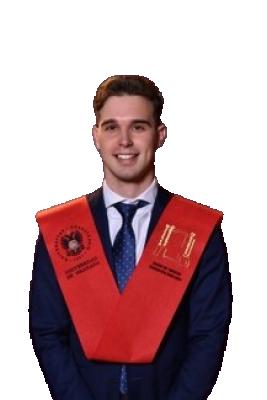This present text analyzes the limitations on freedom of expression that exist in sports regulations, with special mention to UEFA regulations, which have established strict rules that limit the freedom of expression of athletes during competitions. These rules prohibit any type of political, religious, or racial manifestation, with the aim of maintaining a neutral sporting environment and thus avoiding conflicts among fans, all in accordance with the Olympic Charter. This regulation has not been without controversy, as it has generated debates about the restriction of individual rights. To this end, we will analyze the possibility of establishing such limits according to the need to preserve public order and guarantee equality among all participants. A position that has been questioned in several cases, generating a complex debate about the limits of freedom of expression in a sports context.
Full article
Athletes' freedom of expression in competitions: balancing individual rights and the collective interest
Sports, especially football as the "king of sports," have become immense media and advertising platforms. More and more companies are approaching governing bodies like UEFA to have their brands advertised on playing fields. The recent Euro 2024 in Germany is a prime example of the impact of international competitions, particularly those organized by UEFA, given the participation of the world's top teams, both clubs and national selections.
This phenomenon parallels the Olympics currently being held in France, a global focal point. The impact extends beyond football to all sports recognized by the International Olympic Committee (IOC).
Both UEFA and the IOC are well aware of the immense media coverage and the potential benefits of advertising and personal expressions within sports competitions. However, they are also cognizant of the potential issues that can arise from certain statements, especially those of a political, ideological, religious, offensive, or provocative nature. Consequently, their regulations explicitly prohibit the use of such messages.
Given the global reach of international competitions, it is understandable that international federations strive for neutrality, positioning themselves as apolitical entities. This stance is logical, considering that organizations like UEFA and the IOC must interact with governments of various political ideologies.
UEFA's Disciplinary Regulations, specifically Article 16, allow for sanctions against those who make offensive or politically charged statements during sporting events. This aligns with the Olympic Charter, the supreme law governing the Olympic Movement. The Charter's Article 53.3 prohibits political, religious, or racial demonstrations at Olympic venues.
.jpg)
These provisions have been controversial, with critics arguing that they infringe upon the right to freedom of expression. Recent incidents, such as the Spanish national team's chant during Euro 2024 and the representation of the Last Supper at the Olympic opening ceremony, have brought these limitations to the forefront.
While freedom of expression is a fundamental right, it is not absolute. The adage "your rights end where others' begin" highlights the need to balance individual rights with the rights of others and the broader societal interest.
Sports governing bodies aim to create a welcoming and inclusive sporting environment where athletes and fans can feel safe and respected. Political statements can potentially disrupt this atmosphere, especially when rivalries and differing ideologies are involved.
Athletes who participate in international competitions, by agreeing to the rules and regulations of the governing bodies, implicitly accept certain limitations on their freedom of expression. This is similar to other professions where individuals may have to adhere to specific codes of conduct.
The obligation to undergo doping tests, even at short notice, is another example of the restrictions that athletes face in the interest of fair play and the integrity of sport.
In conclusion, while athletes have a right to freedom of expression, their involvement in organized sports subjects them to specific limitations. These restrictions are aimed at maintaining a neutral sporting environment, preventing disruptions, and ensuring the fair play and integrity of competitions
Comments
Related links
Main menu












